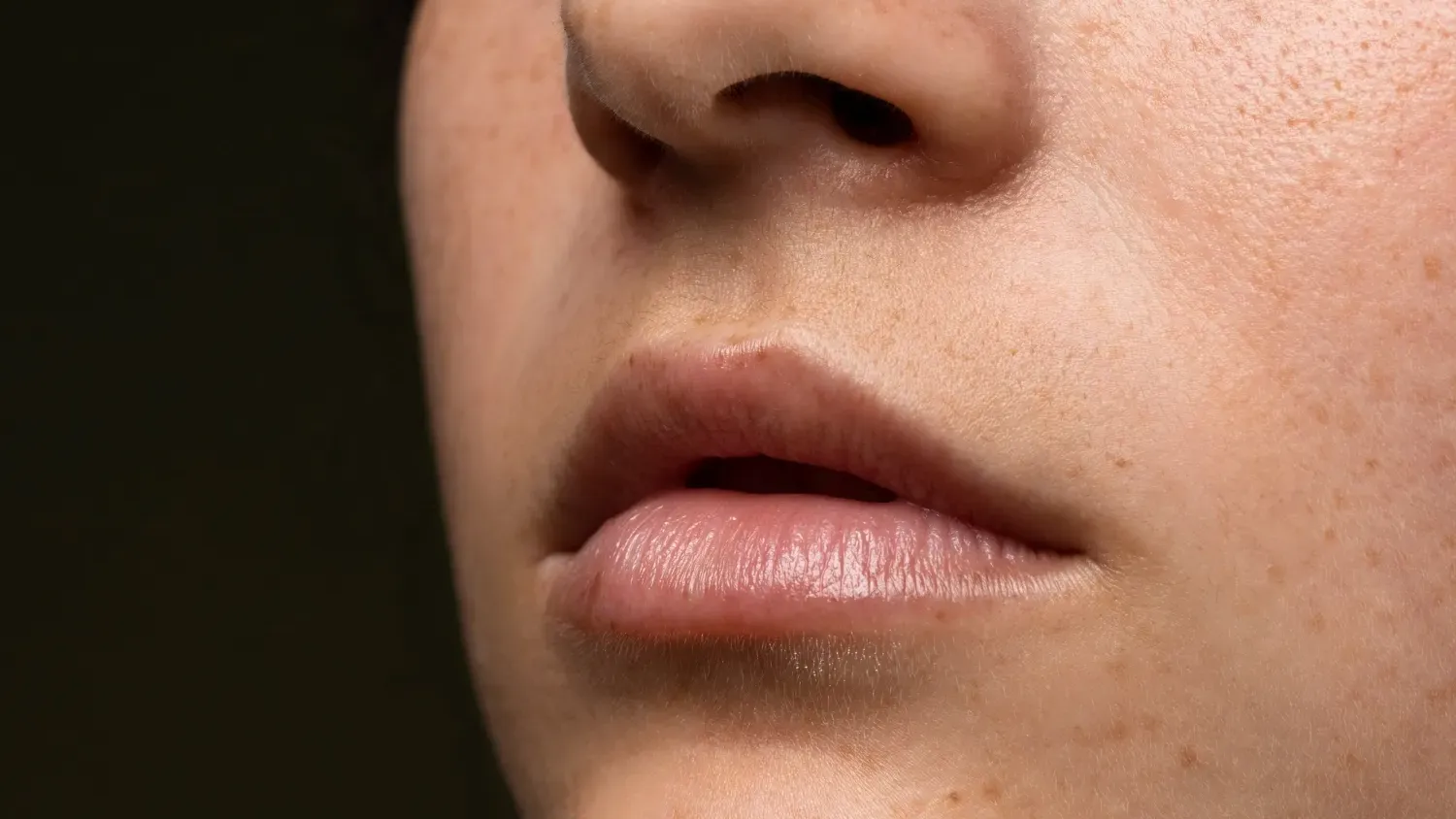Understanding Hyperpigmentation Around the Mouth

EXTRA 5% OFF ON PREPAID

Hyperpigmentation around the mouth is a common skin concern, particularly among individuals with brown skin tones. This condition manifests as dark patches or discoloration, often causing distress and affecting self-esteem. Understanding the causes, treatments, and preventive measures can empower you to embrace your natural beauty while maintaining healthy skin.
Hyperpigmentation around the mouth is a specific type of skin discoloration that manifests as darker patches or spots in the perioral area, which is the region surrounding the mouth. This condition occurs when there is an overproduction of melanin, the natural pigment responsible for giving skin its color. Melanin is produced by specialized cells called melanocytes, which respond to various stimuli, leading to an increase in pigment in certain areas. When hyperpigmentation occurs around the mouth, it can create a noticeable contrast with the surrounding skin, resulting in an uneven skin tone that can be both distressing and challenging to manage.
Several factors contribute to the development of hyperpigmentation around the mouth. One of the primary culprits is sun exposure. Ultraviolet (UV) rays from the sun can trigger melanocyte activity, causing an increase in melanin production as a protective response. This is why individuals who spend prolonged periods outdoors without adequate sun protection are more prone to developing dark spots around their mouths and other sun-exposed areas.
Hormonal changes also play a significant role in the onset of hyperpigmentation. Conditions such as pregnancy or hormonal imbalances can lead to a phenomenon known as melasma, which is characterized by dark patches on the face, including the mouth area. This type of hyperpigmentation is often exacerbated by sun exposure, creating a cycle that can be difficult to break.
Additionally, skin trauma, including injuries, acne, or even aggressive skincare treatments, can lead to post-inflammatory hyperpigmentation (PIH). When the skin experiences trauma, the body's healing response may result in an overproduction of melanin in the affected area, leading to dark spots around the mouth. This is particularly common for individuals who may have a history of acne or other skin conditions that cause irritation or inflammation in the perioral region.
Hyperpigmentation around the mouth is a multifaceted skin concern that stems from an excess of melanin production due to various factors, including sun exposure, hormonal fluctuations, and skin trauma. Understanding these underlying causes is crucial for effective prevention and treatment, allowing individuals to achieve a more even skin tone and regain their confidence.
While hyperpigmentation can affect anyone, individuals with brown skin tones are often more prone to this condition due to higher melanin levels. Additionally, women are more likely to experience hormonal changes that can exacerbate pigmentation issues.
There are various treatment options available to address hyperpigmentation around the mouth:
Prevention is key when it comes to managing hyperpigmentation. Here are some effective strategies:
Knowing your skin type is essential for choosing the right products and treatments. Brown skin can be more susceptible to hyperpigmentation, so understanding your unique needs will help you make informed decisions about your skincare routine.
For those struggling with hyperpigmentation, consider incorporating advanced skincare solutions like MelaMe™ Complex. This melanin-first molecule is designed to visibly treat discoloration and restore pigment balance in your skin within two weeks of regular use. It works by breaking excess melanin deposits down into re-absorbable amino acids, inhibiting further melanin production, and ultimately bringing you even-toned, clarified skin.
Environmental stressors, sun exposure, and excess sebum can lead to inflammation and breakouts on melanated skin, resulting in uneven skin tone and post-inflammatory hyperpigmentation. MelaMe™ Complex addresses these issues effectively, restoring your skin's natural beauty.
Yes, many over-the-counter products contain ingredients that can help lighten hyperpigmentation. However, for severe cases, consulting a dermatologist is recommended.
Results can vary depending on the treatment used. Some may see improvements within a few weeks, while others may take longer. Consistency is key.
No, hyperpigmentation can often be treated and improved with the right skincare routine and treatments. However, it may take time and patience.
Some treatments may cause irritation or sensitivity, particularly chemical peels and laser treatments. Always consult a professional before starting any new treatment.
Hyperpigmentation around the mouth is a common concern, but it doesn't define your beauty. By understanding the causes, exploring treatment options, and adopting preventive measures, you can embrace your skin's unique characteristics. Remember, your journey towards self-discovery and well-being is a personal one, and every step taken towards healthy skin is a step towards empowerment.
As you navigate your skincare journey, consider the importance of community and support. Engaging with others who share similar experiences can foster a sense of belonging and encourage personal growth. Celebrate your individuality, and let your authentic self shine through.